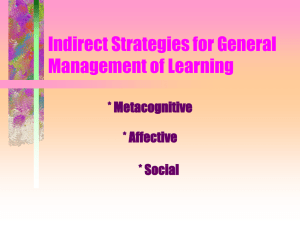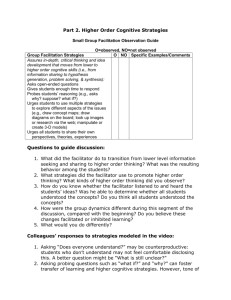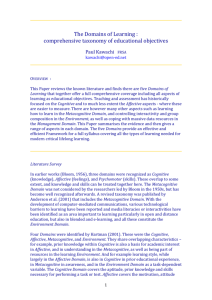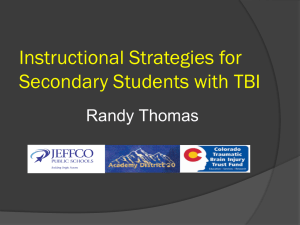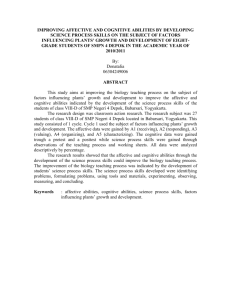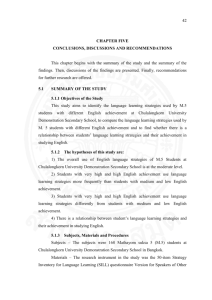STRATEGIES USEFUL FOR LISTENING
advertisement
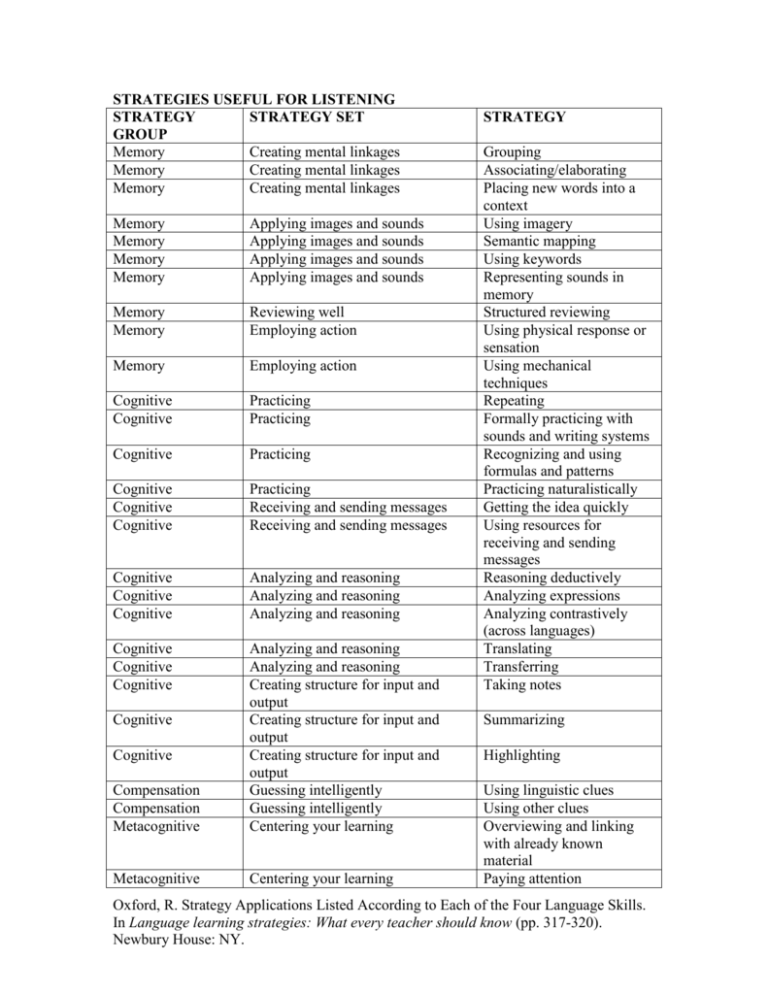
STRATEGIES USEFUL FOR LISTENING STRATEGY STRATEGY SET GROUP Memory Creating mental linkages Memory Creating mental linkages Memory Creating mental linkages Memory Memory Memory Memory Applying images and sounds Applying images and sounds Applying images and sounds Applying images and sounds Memory Memory Reviewing well Employing action Memory Employing action Cognitive Cognitive Practicing Practicing Cognitive Practicing Cognitive Cognitive Cognitive Practicing Receiving and sending messages Receiving and sending messages Cognitive Cognitive Cognitive Analyzing and reasoning Analyzing and reasoning Analyzing and reasoning Cognitive Cognitive Cognitive Compensation Compensation Metacognitive Analyzing and reasoning Analyzing and reasoning Creating structure for input and output Creating structure for input and output Creating structure for input and output Guessing intelligently Guessing intelligently Centering your learning Metacognitive Centering your learning Cognitive Cognitive STRATEGY Grouping Associating/elaborating Placing new words into a context Using imagery Semantic mapping Using keywords Representing sounds in memory Structured reviewing Using physical response or sensation Using mechanical techniques Repeating Formally practicing with sounds and writing systems Recognizing and using formulas and patterns Practicing naturalistically Getting the idea quickly Using resources for receiving and sending messages Reasoning deductively Analyzing expressions Analyzing contrastively (across languages) Translating Transferring Taking notes Summarizing Highlighting Using linguistic clues Using other clues Overviewing and linking with already known material Paying attention Oxford, R. Strategy Applications Listed According to Each of the Four Language Skills. In Language learning strategies: What every teacher should know (pp. 317-320). Newbury House: NY. Metacognitive Centering your learning Metacognitive Metacognitive Metacognitive Affective Arranging and planning your learning Arranging and planning your learning Arranging and planning your learning Arranging and planning your learning Arranging and planning your learning Arranging and planning your learning Evaluating your learning Evaluating your learning Lowering your anxiety Affective Affective Affective Affective Affective Affective Affective Lowering your anxiety Lowering your anxiety Encouraging yourself Encouraging yourself Encouraging yourself Taking your emotional temperature Taking your emotional temperature Affective Taking your emotional temperature Social Asking questions Social Social Cooperating with others Cooperating with others Social Empathizing with others Social Empathizing with others Metacognitive Metacognitive Metacognitive Metacognitive Metacognitive Delaying speech production to focus on listening Finding out about language learning Organizing Setting goals and objectives Identifying the purpose of a language task Planning for a language task Seeking practice opportunities Self-monitoring Self-evaluating Using progressive relaxation, deep breathing, or meditation Using music Using laughter Making positive statements Taking risks wisely Rewarding yourself Using a checklist Writing a language learning diary Discussing your feelings with someone else Asking for clarification and verification Cooperating with peers Cooperating with proficient users of the new language Develop cultural understanding Becoming aware of others’ thoughts and feelings Oxford, R. Strategy Applications Listed According to Each of the Four Language Skills. In Language learning strategies: What every teacher should know (pp. 317-320). Newbury House: NY.
